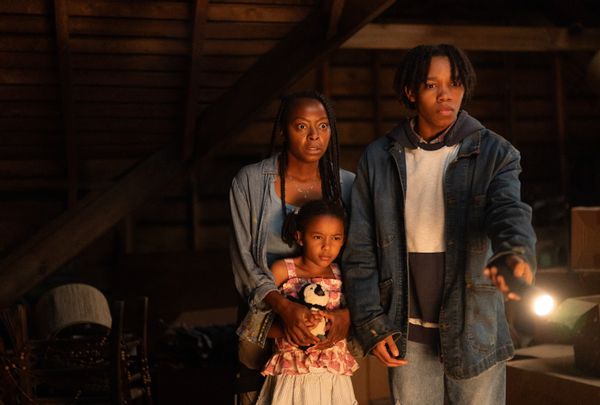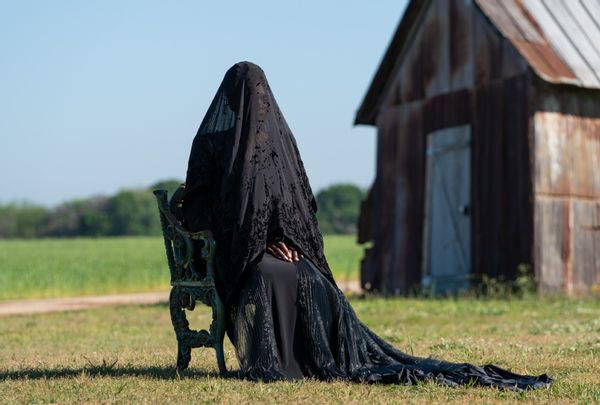
Malcontentment is another matter. The heart wants what it wants, and people can’t help what they feel, but the sinister forces at the heart of all horror movies — man, manmade, natural or eldritch — have a dreadful knack for clocking existential malaise and reacting accordingly. In Danny and Michael Philippou’s 2022 smash hit "Talk to Me," for example, a grieving teenager reaches beyond death’s veil to communicate with her dead mother’s ghost; instead, she’s gulled by a cruel, duplicitous entity that cosplays as her mom and exploits her despair so thoroughly, it almost persuades her to roll her best friend’s little brother into traffic.
That’s called “effing around and finding out” in the parlance of our times; a succinct, coarse way to sum up one of horror cinema’s traditional functions. On Friday, director Jaume Collet-Serra and writer Sam Stefanak kept that tradition going with "The Woman in the Yard," the latest addition to Blumhouse Productions’ repertoire of contemporary campfire stories. The movie embraces the get-what-you-ask-for dynamic, centering on a fractured family – Ramona (Danielle Deadwyler), her son Taylor (Peyton Jackson), and her daughter Annie (Estella Kahiha) – still recovering from the sudden and recent loss of David (Russell Hornsby), her husband and their dad.
It’s a gorgeous day on their homestead: the sun’s beaming down on the field, the barn, the chicken coop and the black-garbed mystery woman (Okwui Okpokwasili) patiently sitting on an ornate chair between the fork in the dirt road. The woman appears out of nowhere with elusive purpose, taunting Ramona — who is hobbled by the broken leg she sustained in the car wreck that took David's life — warning, “Today’s the day,” in wicked sing-song. How well Ramona understands the woman’s meaning is an open question, but given that she limps off immediately on hearing the threat, “well enough” seems a reasonable estimation.
"The Woman in the Yard" dissolves into a mess right after. Ramona is emotionally distant and prone to fearsome outbursts, notably berating Annie for repeatedly miswriting her “r”s on her homework. Meanwhile, as the family stays locked down in the house, the woman (and her exquisite chair) moves closer, foot by foot, toward their doorstep. Her shadow interacts with the physical world, too, making wind chimes whistle with a wag of her fingers — a deliciously spooky detail the movie doesn’t make enough hay out of. "The Woman in the Yard" much too coyly invites the audience to wonder whether the woman, or Ramona, is the greater danger; like too many modern horror films, it’s about trauma, actually, where the monster is an ancillary villain and the lead’s mental wellbeing is the true antagonist.
Collet-Serra knots that thread with a third-act scene of unexpected tenderness, where Ramona and the woman do what people and monsters so rarely do: talk. “I don’t come unless I’m called,” the woman explains to Ramona, as Okpokwasili cuts a regal, gothic figure of steely poise, practically engulfing Deadwyler merely by sitting beside her. For a minute, the film seems to invoke Samuel Coleridge: “Death came with friendly care.” It turns out that Ramona unwittingly summoned the woman the night David died. A flashback shows the pair arguing over their living situation; he’s enthusiastic about relocating the family to the farmhouse, and she’s preemptively suffocating from seclusion’s effects on her work as an artist. On the drive home, Ramona catches the woman’s notice without realizing it, then loses control of the car.









